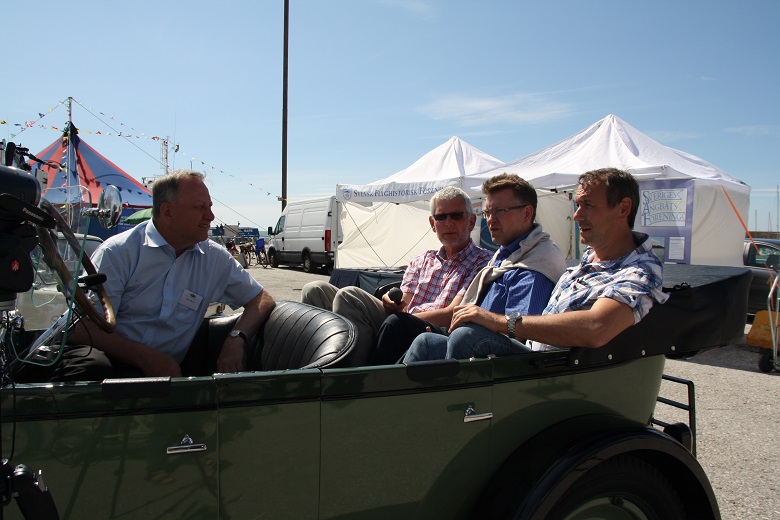Nordic Meeting in Helsinki from 29 to 27.09.2013.
The Finnish Historical Automobile Club Nordic meeting was held 27-29. September, there were also delegates from Latvia and Estonia present.
The review of the challenges facing the historical motor movement in the various countries show that government relations and lobbying has been the main focus areas over the past year. Not least in the Baltic states where the clubs are not yet completely finished forming functioning national associations, and thus each club must contact the authorities in some cases.
Denmark and Finland have no major challenges at this the time, but are clear that they constantly have to make sure that no new legal and regulatory obstacles for veteran hobby are introduced.
Sweden have by far the greatest challenges to the hobby in the past few years, and the situation in several areas were characterized as very serious. MHRF (Sweden's Historical Motor Club) presented an overview of the issues where they are currently meeting resitance from Customs, the Environmental Protection Agency and Ministry of Transport .
- A historic vehicle must have previously been registered in Sweden to gain status as "historic vehicle". A Model T Ford that is to be imported from abroad is not historical.
- In some other cases, an exemption is reqiured to register a historic vehicle in Sweden. The fee for this, has risen from kr 600 to kr 2,600 in just four years, ie by 333 percent.
- Some old vehicles also have wonderful handwritten registration documents with contemporary stamps and tax stamps. These are of great historical value, and should naturally accompany the vehicle. But the authorities require these handed in for storage and subsequent disposal.
- The strict rules for proof of origin is justified by that there are 5,500 stolen historical vehicles in the country. MHRFs surveys show that only concerns a few individual objects that are vulnerable to theft. Yet the authorities continues to defend the claim without being able to show any evidence to back it up.
- If you are importing a vehicle from another country outside the EU then you must pay the customs duty. There is a separate duty rate for historical motor vehicles. The rules say whatever the tariffs a historical motor vehicle must be of "historical and ethnographic interest." However, the customs authorities may in fact also refuse to approve a "historical motor vehicle" if they think this does not represent a significant step in the development of motoring history or illustrate a period in this development.
- MHRF managed after much work to stop a proposal in a government report that suggested that the dismantling of private vehicles for the use of spare parts had to be seen as illegal scrapping.
Because of all the listed historical motoring obstacles, MHRF have received support from two MPs from the Christian Democrats and one from the Center Party for its demand that the Cultural Heritage Act shall also include movable heritage. Read more at this link: http://mhrf.se/debattartikel2013
At the Nordic meeting MHRF said that this has first priority in the coming years.
The meeting also agreed a common position on who should take over the presidency of the International historical Motor organization FIVA. The choice fell on Patrick Rollet from the French association, who has been skilled and very active in several committees. Rollet has proven to be a good diplomat and speaks fluent English.
There will also be a Nordic group meeting on Thursday, 14.11 at the FIVA General Assembly.





